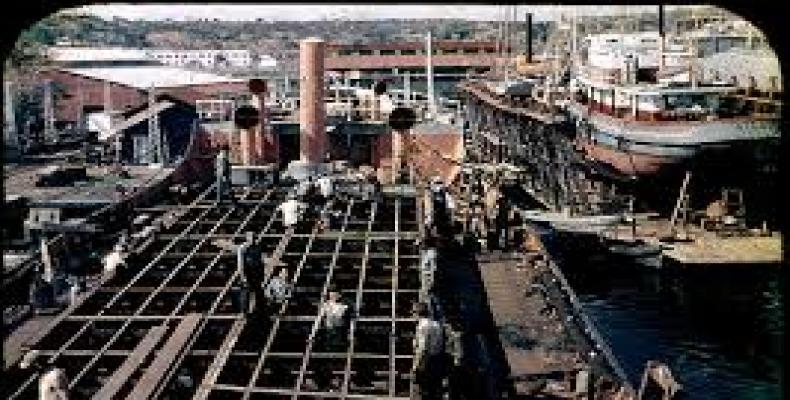As early as 1560, the shipyards in Havana produced some of the best fighting galleons in the world. But it wasn’t until 1749 that Spain, in order to re-build its navy and stay ahead of the British, established the Royal Shipyards in Havana.
The shipyard’s most famous vessel was the Santísima Trinidad. She was launched on March 3, 1769, and was the largest fighting ship of the age, carrying 120 cannons on four decks. It was said by one visitor that her staterooms on the poop deck were palaces inside, and a fortress on the outside. She was a colossus of the sea, a mighty giant.
When the American colonies declared their independence from England, the Royal Arsenal Shipyard of Havana played a key role. Since the British controlled all the shipyards in the colonies, it was to Cuba’s shipyard that all American and French vessels headed to for repairs and for supplies.
Sea power played a very important role in the revolutionary war; and it was Cuba’s shipyards that made it possible for Spain to open an “important second front in the war that drew British attention away from the main theater along the Atlantic coast.”
It was from Cuba that General Bernardo de Gálvez, governor of Spanish Louisiana, led Spanish troops in the capture of Mobile and Pensacola, causing severe damage to the British fleet and thus making it possible for the colonist to win their final battle at Yorktown.
The Santísima Trinidad was constructed on a scale of 1:25 by a group of Cuba's finest artisans skilled in modelling historic ships. The replica, on view at La Fuerza Fortress in Old Havana, is almost 4 metres long and of similar height, fully rigged with hand cast armaments, cut away sections, and a computer interface system which allows a virtual tour of the ship in Spanish, English and French.
It is interesting to note that at least four of the Spanish ships at the battle of Trafalgar in 1805 were constructed in Havana including the Bahama with Captain Galiano aboard. Galiano is well know in Canada for his earlier explorations for Spain along the coast of British Columbia.


